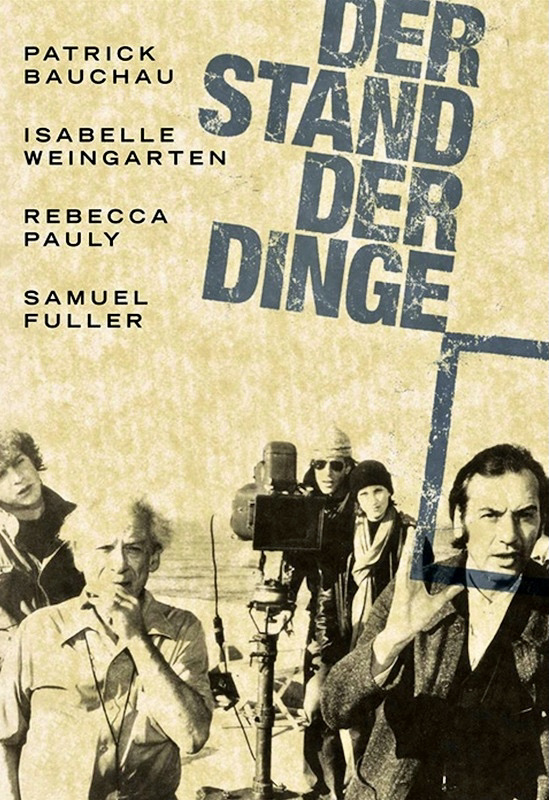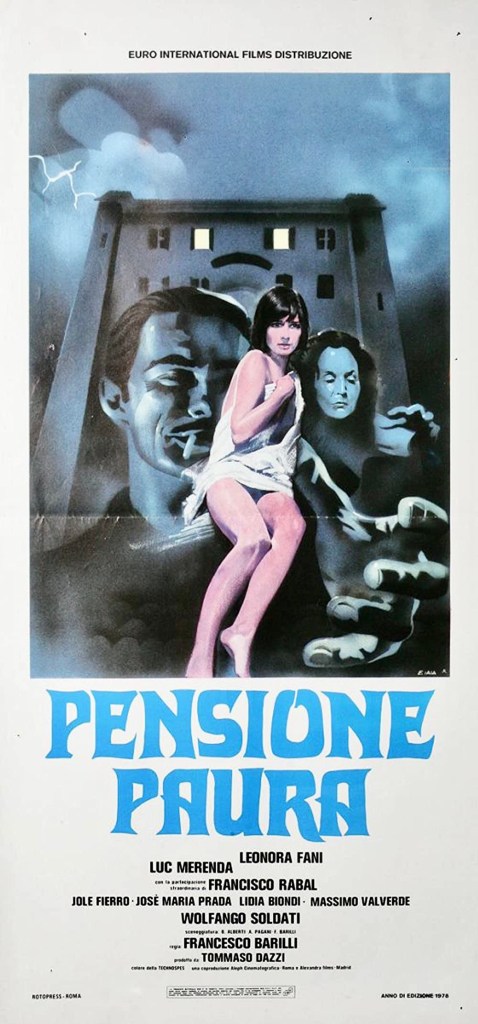One wouldn’t normally associate Robert Bresson with such rapturously romantic, Paris-based films as Ninotchka, An American in Paris, Funny Face, Gigi, and Love in the Afternoon yet Four Nights of a Dream (Quartre Nuits d’un Reveur, 1971) is probably the closest the French director has ever come to making a film about love, longing and desire. You could even say it is almost a musical since strolling street musicians occasionally break into song at unexpected moments in the narrative.
Loosely adapted from the Fyodor Dostoevsky short story “White Nights,” which had previously been adapted for the screen by Luchino Visconti in 1958, Four Nights of a Dreamer takes place over a specific time period but includes flashbacks which give context to the two main characters, Jacques (Guillaume des Forets), an art student, and Marthe (Isabelle Weingarten), a young woman who lives a lonely, repressive existence with her mother.

Marthe is standing on a bridge overlooking the Seine and contemplating suicide when Jacques first sees her and intervenes. Their ensuing relationship, which is both a romance and a friendship, affords Bresson the opportunity to explore the concept of love and the illusion of it. Unlike some of Bresson’s earlier films like Au Hasard Balthazar (1966) and Mouchette (1967), which featured austere depictions of rural life and beaten-down characters photographed in stunning black and white compositions by Ghislain Cloquet, Four Nights of a Dreamer is lush in comparison, due in part to the dreamy color imagery of cinematographer Pierre Lhomme. The film also pokes fun in subtle ways at Parisian youth while injecting moments of satire (a film premiere and a film-within-a-film) and even eroticism such as Marthe appraising her nude body in one sequence.

Still, the main emphasis of the film is the evolving relationship of Jacques and Marthe and whether they are ideally matched or deluded in their feelings. Marthe, for her part, is recovering from a broken heart. She became obsessed with a male lodger (Jean-Maurice Monnoyer) in her mother’s apartment and they had a brief tryst shortly before his departure for the U.S. He promised to return one year later with a marriage proposal but when he doesn’t honor that commitment, Marthe is overcome by despair.

Jacques offers to serve as an intermediary for Marthe in regards to her recently returned lover but his efforts prove self-defeating in an ending which is realistic and unsentimental. None of this will come as a surprise since Bresson depicts Jacques as someone who lives in his own head and avoids interaction with others. He has an active interior life represented by his paintings and a tape recorder which he uses to capture his poetic musings as a possible novel in progress or fantasy diary. Jacques also has a habit of following women who interest him without engaging them in conversation. Is it out of shyness or fear of breaking the romantic spell?

All of this changes when he meets Marthe and he confesses to her: “How many times I was in love…with no one, an ideal, the woman in my dream. And God sends an angel to show me the way, to reconcile me with myself.” Of course, Marthe has her own romantic fantasies but they seem to be more opportunistic and grounded in reality than Jacques’s imaginings.
Is she attracted to the male boarder because he offers an escape from her boring, financially-strapped life with her mother? Or is it a matter of sexual desire? Perhaps her comment to Jacques – “I love you because you’re not in love with me” – can be interpreted as an admission of Marthe’s contradictory and unattainable nature.
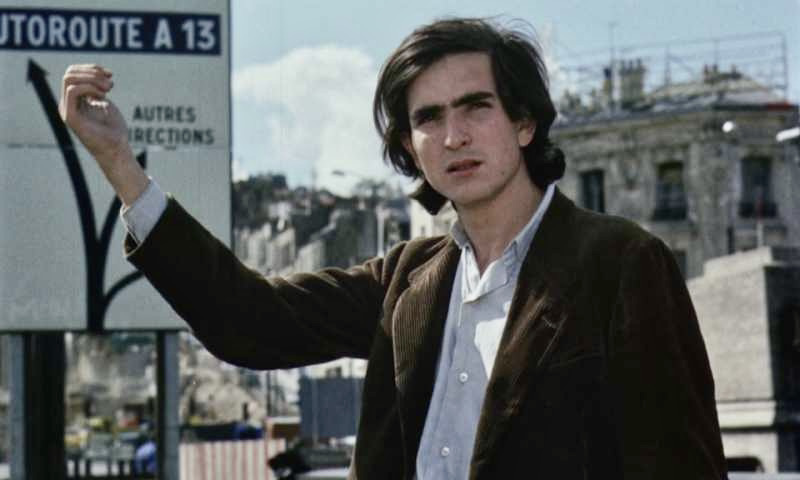
Even if Four Nights of a Dreamer could be described as a romantic drama, it is still dispassionate, minimalistic and exacting in its details like all of Bresson’s work. The emotions of the characters are not conveyed through the performances as much as they are through still life-like compositions which capture Jacques and Marthe in private moments, deep in their own thoughts.

What gives the film an added richness are the evocative nighttime scenes of Paris with its bohemian culture and lovely shots of the Bateaux Mouches (open excursion boats) that glide up and down the Seine. The musical sequences featuring street performers also evoke the early seventies in that city with jaunty international folk tunes performed by Marku Ribas and other composers such as French singer F.R. David aka Elli Robert Fitoussi, Chris Hayward and Michel Magne.
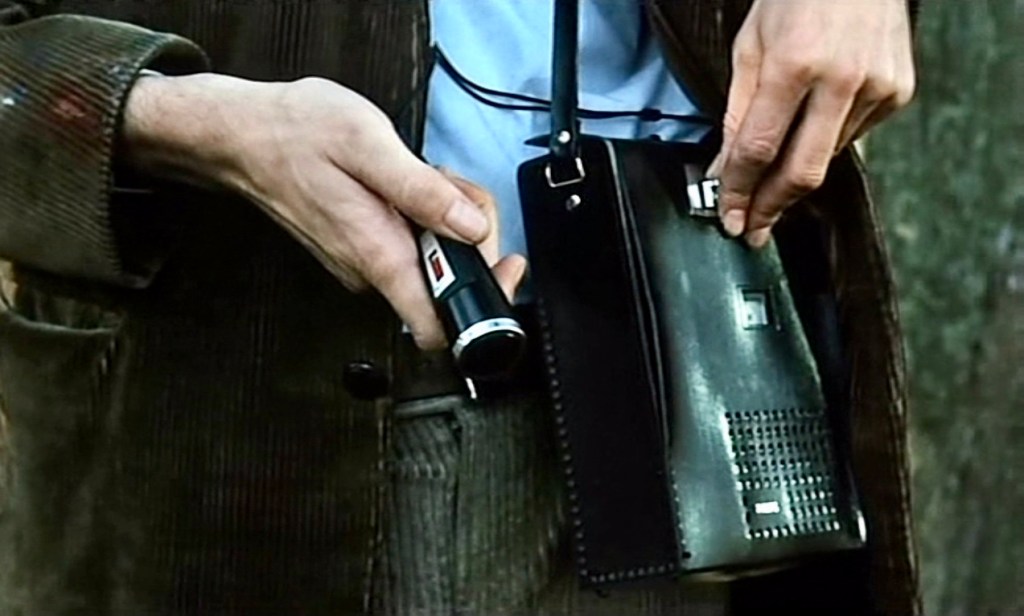
The most atypical aspect of Four Nights of a Dreamer is the sequence where Marthe and her mother attend a movie premiere and we see a few minutes of a violent crime thriller as imagined by Bresson. Bresson admitted in an interview with Carlos Clarens that this was his “chance to poke fun at a certain kind of movie,” adding, “It’s just a mockery of passion and romanticism, of blood and violence. I also thought that all that exaggeration would contrast with the restraint of my character, which is not really restraint but simply a refusal to indulge in theatrics.”
In the same interview, Bresson also commented on his frequent use of non-professional actors, who often bring qualities to his films which trained actors lack. For Four Nights of a Dream, the main protagonists were recommended by friends. “They had no acting experience or ambition, but instead a literary or university background. Guillaume des Forets, who plays Jacques, was a student of astrophysics and the son of a well-known writer. Isabelle [Weingarten], who plays Marthe, is the daughter of the playwright Roman Weingarten. She has worked as a model.”
Interestingly enough, Weingarten went on to become an actress in real life, giving memorable performances in such art house classics as Jean Eustache’s The Mother and the Whore (1973) and Wim Wenders’s The State of Things (1982). The only other actor with professional experience in Four Nights of a Dreamer is Italian actress Lidia Biondi in the role of Marthe’s mother. She has appeared in supporting roles in everything from genre thrillers like Hotel Fear (Pensione Paura, 1978) to big budget period pieces like Casanova (2005) starring Heath Ledger.
Like most of Bresson’s films, Four Nights of a Dreamer is an acquired taste. You either tune into his vision or remain emotionally disengaged. Roger Greenspun of The New York Times wrote, “I doubt that “Four Nights of a Dreamer” is Bresson’s greatest movie, but it may well be his loveliest. Time and again, it is shockingly beautiful, and I can think of nothing in recent films so ravishing as his strange romantic vision of the city, the river, the softly lighted tourist boats in the night.”
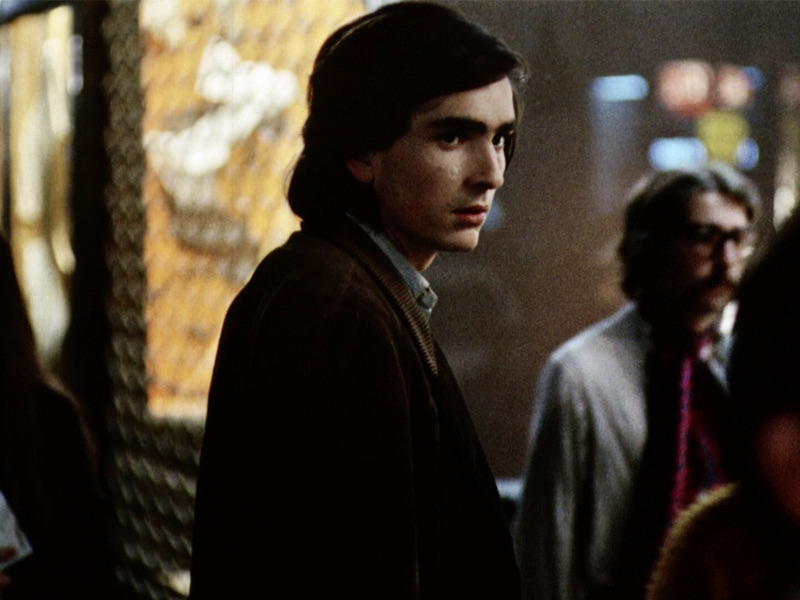
Reflecting an opposing view is Ted Whitehead of The Spectator who states, “Where [Dostoevsky] reveals and analyses intensity of perception, Bresson merely suggests it. The parable shrinks into an anecdote, and a pretty boring one at that.”

For many years Four Nights of a Dreamer has been out of circulation and difficult to see in any format. In February 2013 the film was finally released to Blu-ray by the Japanese distributor Etantje/Imagica. It is a region A disc in French with removable Japanese subtitles (no English language/subtitle options). You might be able to purchase a copy from international sellers but I suspect Criterion or some other distributor will make this available in the U.S. someday in an English subtitled version.
Other websites of interest:
https://www.thecinetourist.net/bresson-69-71.html





